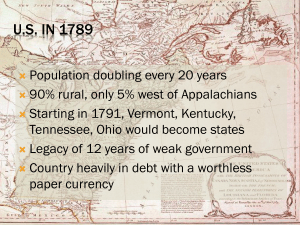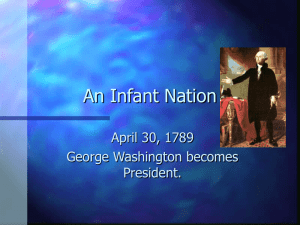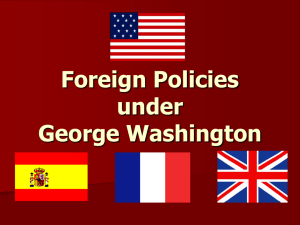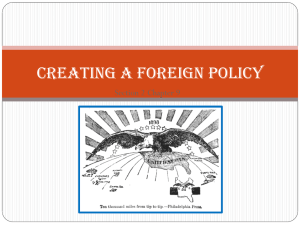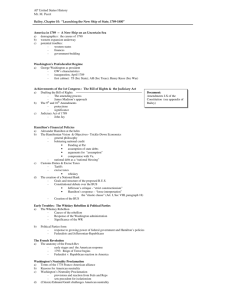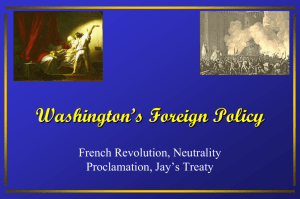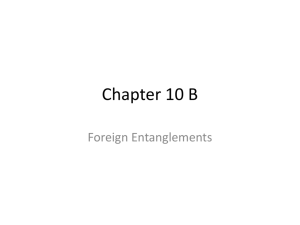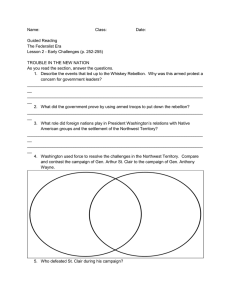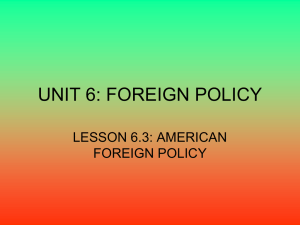George Washington Balance Sheet Assets
advertisement
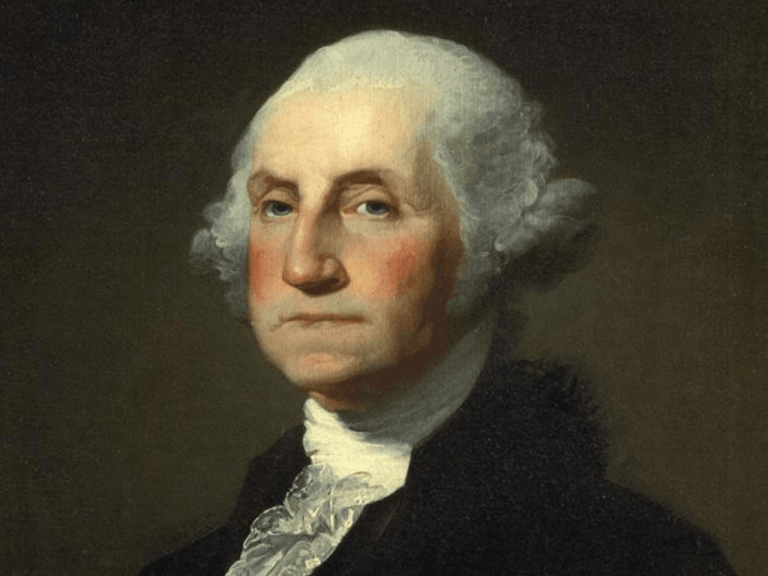
George Washington Balance Sheet Assets Great Moral Character Man of virtue Leadership skills Charismatic Gentleman Impartial and Unbiased No self-interest Flair for the dramatic Liabilities No formal education Not a military genius Sensitive to criticism Volatile temper Cold, unemotional Detailed/Control Freak Averse to fame—vanity? Analysis of Washington 1. Exceptional leader --Deferred to his assistants (TJ v AH) --Visionary who helped form the new republic 2. Precedent of the President --Dominance of the Executive Branch in Foreign Affairs (Jay’s Treaty) Minority factions can protest peacefully, but cannot take up arms (Whisky Rebellion) Idea of national independence and a warning against political factionalism (Farewell Address) Foreign Policy Survival (1783-1814) •Existence of America was in Jeopardy •9 elements of National Power in 1792, the United States had 0 Military Capacity --600 man army, Navy of 3 ships National Morale --country divided on the constitution and political party •Events Northwest Indian War 1791—”Bloodiest American Battle”, General Arthur St. Clair, 700 Americans killed 1794—”Mad” Anthony Wayne and the Battle of Fallen Timbers 1795—Treaty of Greenville Relations with France Neutrality Proclamation (1793) Washington says we are going to stay out of Europe’s Wars Demonstrated tensions between TJ and AH Withdrawal from the Franco-American Alliance Alliance signed in 1778 to provide for help with Revolutionary War Was to last 20 years, lasted 15 Relations with Great Britain Seizure of ships by the British Jay’s Treaty (1794)—Britain leave the Forts in the NW, we pay back our debts, very unpopular Relations with Spain Pinckney Treaty (1795)— port of N.O. Ended the Florida border dispute Opened the port of N.O. to American Ships Washington’s Farewell Address •Spirit of the address was directed at creating an independent nation with a distinctively American and republican character •Take the middle ground in American politics and foreign policy (no factions and neutrality) • •“Tis our true policy to steer clear of permanent alliances with any portion of the foreign world.” Misinterpreted that he was preaching Isolation Young nation needed time to mature It was in our national interest to allow this to happen •Isolationist view reflected in the U.S. being a reactive nation: Mexican-American War? Spanish-American War? World War I? World War II? Korean War? Vietnam War? Afghanistan? Iraq? North Africa?
